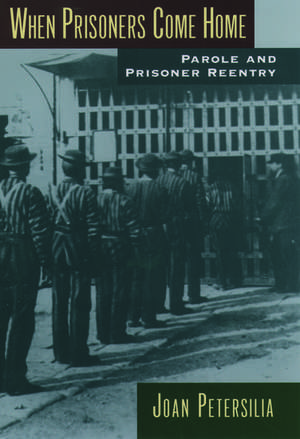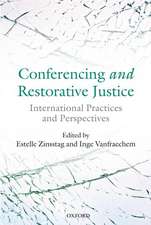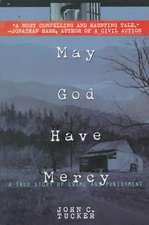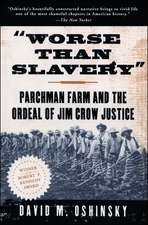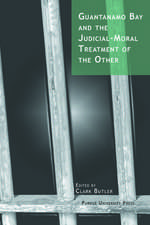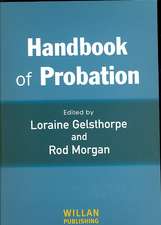When Prisoners Come Home: Parole and Prisoner Reentry: Studies in Crime and Public Policy
Autor Joan Petersiliaen Limba Engleză Paperback – 26 mar 2009
As long as there have been prisons, society has struggled with how best to help prisoners reintegrate once released. But the current situation is unprecedented. As a result of the quadrupling of the American prison population in the last quarter century, the number of returning offenders dwarfs anything in America's history. What happens when a large percentage of inner-city men, mostly Black and Hispanic, are regularly extracted, imprisoned, and then returned a few years later in worse shape and with dimmer prospects than when they committed the crime resulting in their imprisonment? What toll does this constant "churning" exact on a community? And what do these trends portend for public safety? A crisis looms, and the criminal justice and social welfare system is wholly unprepared to confront it.
Drawing on dozens of interviews with inmates, former prisoners, and prison officials, Joan Petersilia convincingly shows us how the current system is failing, and failing badly. Unwilling merely to sound the alarm, Petersilia explores the harsh realities of prisoner reentry and offers specific solutions to prepare inmates for release, reduce recidivism, and restore them to full citizenship, while never losing sight of the demands of public safety.
As the number of ex-convicts in America continues to grow, their systemic marginalization threatens the very society their imprisonment was meant to protect. America spent the last decade debating who should go to prison and for how long. Now it's time to decide what to do when prisoners come home.
| Toate formatele și edițiile | Preț | Express |
|---|---|---|
| Paperback (1) | 177.69 lei 31-37 zile | |
| Oxford University Press – 26 mar 2009 | 177.69 lei 31-37 zile | |
| Hardback (1) | 335.17 lei 31-37 zile | |
| OUP OXFORD – 15 mai 2003 | 335.17 lei 31-37 zile |
Din seria Studies in Crime and Public Policy
- 7%
 Preț: 165.83 lei
Preț: 165.83 lei - 25%
 Preț: 587.96 lei
Preț: 587.96 lei - 19%
 Preț: 522.07 lei
Preț: 522.07 lei - 13%
 Preț: 240.99 lei
Preț: 240.99 lei - 13%
 Preț: 320.06 lei
Preț: 320.06 lei -
 Preț: 286.38 lei
Preț: 286.38 lei - 26%
 Preț: 979.85 lei
Preț: 979.85 lei -
 Preț: 245.42 lei
Preț: 245.42 lei - 30%
 Preț: 655.63 lei
Preț: 655.63 lei -
 Preț: 233.32 lei
Preț: 233.32 lei - 7%
 Preț: 186.35 lei
Preț: 186.35 lei - 6%
 Preț: 159.01 lei
Preț: 159.01 lei - 7%
 Preț: 197.69 lei
Preț: 197.69 lei - 10%
 Preț: 230.40 lei
Preț: 230.40 lei - 21%
 Preț: 337.44 lei
Preț: 337.44 lei - 14%
 Preț: 191.00 lei
Preț: 191.00 lei - 19%
 Preț: 423.62 lei
Preț: 423.62 lei - 5%
 Preț: 138.03 lei
Preț: 138.03 lei -
 Preț: 254.36 lei
Preț: 254.36 lei -
 Preț: 226.64 lei
Preț: 226.64 lei - 13%
 Preț: 110.52 lei
Preț: 110.52 lei -
 Preț: 285.38 lei
Preț: 285.38 lei - 9%
 Preț: 191.38 lei
Preț: 191.38 lei - 30%
 Preț: 1012.11 lei
Preț: 1012.11 lei - 20%
 Preț: 269.76 lei
Preț: 269.76 lei -
 Preț: 270.32 lei
Preț: 270.32 lei - 10%
 Preț: 274.48 lei
Preț: 274.48 lei - 18%
 Preț: 346.31 lei
Preț: 346.31 lei -
 Preț: 325.73 lei
Preț: 325.73 lei - 13%
 Preț: 275.27 lei
Preț: 275.27 lei - 27%
 Preț: 376.86 lei
Preț: 376.86 lei - 8%
 Preț: 292.01 lei
Preț: 292.01 lei -
 Preț: 330.38 lei
Preț: 330.38 lei - 30%
 Preț: 658.11 lei
Preț: 658.11 lei - 20%
 Preț: 263.60 lei
Preț: 263.60 lei - 8%
 Preț: 194.05 lei
Preț: 194.05 lei - 19%
 Preț: 241.85 lei
Preț: 241.85 lei - 7%
 Preț: 127.26 lei
Preț: 127.26 lei
Preț: 177.69 lei
Preț vechi: 189.35 lei
-6% Nou
34.01€ • 35.37$ • 28.07£
Carte tipărită la comandă
Livrare economică 01-07 aprilie
Specificații
ISBN-10: 0195386124
Pagini: 320
Ilustrații: 6 black and white line illustrations
Dimensiuni: 152 x 229 x 20 mm
Greutate: 0.45 kg
Editura: Oxford University Press
Colecția OUP USA
Seria Studies in Crime and Public Policy
Locul publicării:New York, United States
Descriere
Every year, hundreds of thousands of jailed Americans leave prison and return to society. Largely uneducated, unskilled, often without family support, and with the stigma of a prison record hanging over them, many if not most will experience serious social and psychological problems after release. Fewer than one in three prisoners receive substance abuse or mental health treatment while incarcerated, and each year fewer and fewer participate in the dwindling number of vocational or educational pre-release programs, leaving many all but unemployable. Not surprisingly, the great majority is rearrested, most within six months of their release. What happens when all those sent down the river come back up--and out?
As long as there have been prisons, society has struggled with how best to help prisoners reintegrate once released. But the current situation is unprecedented. As a result of the quadrupling of the American prison population in the last quarter century, the number of returning offenders dwarfs anything in America's history. What happens when a large percentage of inner-city men, mostly Black and Hispanic, are regularly extracted, imprisoned, and then returned a few years later in worse shape and with dimmer prospects than when they committed the crime resulting in their imprisonment? What toll does this constant "churning" exact on a community? And what do these trends portend for public safety? A crisis looms, and the criminal justice and social welfare system is wholly unprepared to confront it.
Drawing on dozens of interviews with inmates, former prisoners, and prison officials, Joan Petersilia convincingly shows us how the current system is failing, and failing badly. Unwilling merely to sound the alarm, Petersilia explores the harsh realities of prisoner reentry and offers specific solutions to prepare inmates for release, reduce recidivism, and restore them to full citizenship, while never losing sight of the demands of public safety.
As the number of ex-convicts in America continues to grow, their systemic marginalization threatens the very society their imprisonment was meant to protect. America spent the last decade debating who should go to prison and for how long. Now it's time to decide what to do when prisoners come home.
Notă biografică
Joan Petersilia is Professor of Criminology, Law and Society at the University of California, Irvine. The author of numerous books and a former president of the American Society of Criminology, she is a consultant to the United States Department of Justice and to many state and local agencies.
Recenzii
"Joan Petersilia has brilliantly mapped the terrain of prisoner reentry, mixing forgotten wisdom, new data and fresh insights into a compelling call for new approaches to the reintegration of returning prisoners." --Jeremy Travis, Senior Fellow, The Urban Institute
"Prisoner reentry has emerged as the most important new issue in justice policy. When Prisoners Come Home is the best, most comprehensive source of material on reentry that exists anywhere." --Todd R. Clear, Professor, John Jay College of Criminal Justice
"When Prisoners Come Home is scholarship at its highest practical level. With about 600,000 prisoners being released each year, governments are planning massive and expensive efforts to deal with the avalanche. Dr. Petersilia's book is a necessary ally in that formidable task. To add to its attraction, it is crisply and clearly written - scholarship infused by practical experience and presented without pretension. For many decades it will dominate the literature on parole and the conditions of prisoners returning to society." Norval Morris, Julius Kreeger Professor of Law & Criminology, Emeritus, University of Chicago
"Over 95 percent of our state and federal prison inmates will be released, most only a few years after they began their incarceration. Joan Petersilia's lucid book gives us the best scientific guidance on how to maximize, cost-effectively, the prospects that after they get out, they will finally become law abiding." Daniel Glaser, Professor Emeritus, University of Southern California, Past President, American Society of Criminology
"This book shows one important side effect of the arithmetic of getting tough on crime -- if you send six times as many offenders off to prison, you must eventually release six times as many back to the community. The road back from imprisonment becomes a vital element in what makes our cities safe or dangerous. Joan Petersilia combines rigor and common sense to identify policies that promise to be more effective as well as more humane." Franklin E. Zimring, William G. Simon Professor of Law, University of California, Berkeley
Petersilia offers twelve concrete suggestions as to what could be done to reform the infrastructure of post-release supervision and to make re-entry ans resettlement meaningful realities. That is what engaged academics do. Few do it better - few write as lucidly that Joan Petersilia. I urge all probation managers to find out what she suggests.
